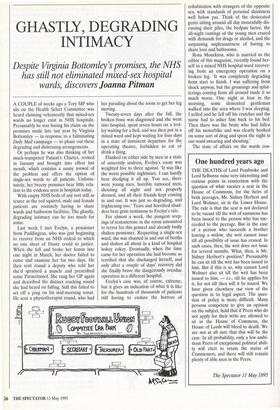One hundred years ago
THE DEATHS of Lord Pembroke and Lord Selborne raise very interesting and curious points in connection with the question of what vacates a seat in the House of Commons, for the heirs of both peerages, Mr. Sidney Herbert and Lord Wolmer, sit in the Lower House. The rule is that the seat is not declared to be vacant till the writ of summons has been issued to the person who has suc- ceeded to the peerage. But in the case of a person who succeeds a brother leaving a widow, the writ cannot issue till all possibility of issue has ceased. In such cases, then, the writ does not issue for several months. What, then, is Mr. Sidney Herbert's position? Presumably he can sit till the writ has been issued to him. But if this is so, why cannot Lord Wolmer also sit till the writ has been issued to him, — i.e., till he applies for it, for not till then will it be issued. We have given elsewhere our view of the question in its legal aspect. The ques- tion of policy is more difficult. Many persons competent to give an opinion on the subject, hold that if Peers who do not apply for their writs are allowed to sit in the House of Commons, the House of Lords will bleed to death. We are not at all sure that this will be the case. In all probability, only a few ambi- tious Peers of exceptional political abili- ty will elect to retain the status of Commoners, and there will still remain plenty of able men in the Peers. The Spectator 11 May 1895


































































 Previous page
Previous page